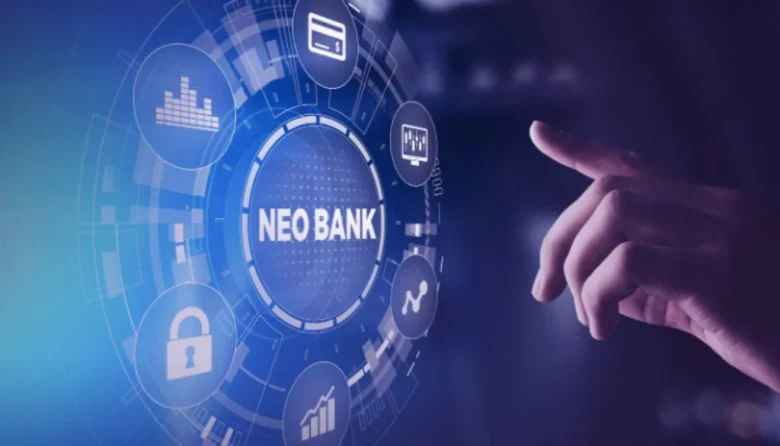Neobanks are leading a huge shift in the banking industry. Neobanks differ from traditional banks in that they operate exclusively online. The financial services they offer are simple to use, smooth, and affordable. These online-only banks use the latest technology to offer everything from checking accounts to loans, all accessible via smartphone apps. Neobanks have attracted millions of consumers around the world with their lower fees, faster transactions, and new features. But what exactly are they? How do they differ from traditional banks? This article explores the evolution of neobanks, their benefits, and why they may be the future of banking.
Defining Neobanks: Banking Without Physical Branches
Neobanks are banks that exist only online and do not have physical branches. They use advanced technology to make their banking services more user-friendly via mobile apps and websites. Some neobanks operate independently, while others partner with traditional banks to offer accounts insured by the Federal Deposit Insurance Corporation (FDIC). What sets them apart is their dedication to making the customer experience simple, quick, and enjoyable. Neobanks can offer consumers lower fees and better interest rates because they do not incur costs for expenses such as rent and utilities, unlike brick-and-mortar banks.
How Neobanks Stand Out from Traditional Banks:
Traditional banks have relied on physical locations and in-person customer interactions for centuries. But digital solutions are even more important to neobanks. They use artificial intelligence and machine learning to personalize services, speed up processes, and detect fraud in real time. Neobanks stand out from traditional banks because they don’t charge monthly maintenance fees or require a minimum balance. Instead, they often offer free accounts with no hidden fees. Their apps are also user-friendly, making banking easier for tech-savvy individuals.
The Technology Behind Neobanks:
Neobanks use a combination of cloud computing, application programming interfaces (APIs), and blockchain technology to make their services work. Cloud-based infrastructure allows them to grow quickly and securely, while APIs allow them to work with other financial tools, such as budgeting apps and investment platforms. Some neobanks are also using blockchain technology to speed up cross-border transactions and improve security. AI-based chatbots can help customers quickly, reducing wait times compared to traditional contact centers. This technology-driven approach ensures that everything runs smoothly, is secure, and provides a better user experience.
Key Benefits of a Neobank:
One of the biggest benefits of neobanks is that they are low-cost. They can offer fee-based or no-fee accounts, higher savings rates, and cashback rewards because they don’t have to pay industry-specific fees. Because they focus on action first, you can create your account immediately, receive instant transaction notifications, and take advantage of convenient money management features. Many neobanks also offer you the ability to create multi-currency accounts, which is very convenient for travelers or self-employed individuals. Additionally, their credit approval algorithms mean that they approve loans faster than traditional banks. Neobanks offer millennials and digital natives a freedom and openness that traditional banks can hardly match.
Neobanks Are Loved by Users Worldwide:
Many neobanks are known for their innovative and useful services. Chime and Current are two banks in the US that charge no fees and offer the ability to pre-deposit funds. Revolut and N26 in Europe offer low-cost multi-currency accounts and international money transfer services. KakaoBank and WeBank are the most popular banks in Asia because they offer convenient digital lending and payment options. Nubank, a digital bank in Latin America, has become one of the largest banks in the world, offering credit cards and investment options to millions of people. These platforms continue to grow and evolve, proving that digital banks are not a fad but the future.
Are Neobanks Safe in Terms of Security and Regulation?
People often worry about neobank security. However, most reputable neobanks work with licensed banks to ensure that deposits are protected by the Federal Deposit Insurance Corporation (FDIC) or similar agencies. They use advanced encryption, biometric authentication (such as fingerprint and facial recognition), and real-time fraud detection to protect users. The strictness of the regulations varies by region, but most neobanks adhere to strict financial restrictions. They may not have physical locations, but their online security is usually higher than that of traditional banks, making them a safe choice for the tech-savvy.
Challenges for Neobanks:
While neobanks are flourishing, they still face many challenges, such as how to deal with regulatory scrutiny, profitability, and earning customer trust. Some people are reluctant to leave traditional banks because they do not have physical branches. People may not be able to deposit money or receive personal assistance, both of which are examples of limited services. Furthermore, while neobanks are suitable for general banking, they may lack specialized products such as mortgages or wealth management. They must overcome these issues to be successful in the long run.
Neobanks vs. Traditional Banks: Which Is Better?
The choice of a neobank or a traditional bank depends on personal needs. Traditional banks offer more services, such as safe deposit boxes, notary services, and personal appointments. Neobanks, on the other hand, are more convenient, cheaper, and have new features such as automatic savings and spending analysis. For those who only accept online banking, neobanks are the current choice. Hybrid models are also becoming more common. Traditional banks will add features similar to those of neobanks.
Future Direction of Neobanks:
As more people adopt digital services, neobanks can offer more loans, insurance, and investment products. Embedded finance, where banking services are integrated into programs that have nothing to do with money (like Uber has a wallet), will undoubtedly flourish. Central bank digital currencies (CBDCs) can help neobanks evolve and change. As competition increases, neobanks must focus on standing out, retaining customers, and achieving sustainable profits. One thing is clear: neobanks are leading the banking industry into a digital future.
Conclusion:
Neobanks will dramatically change the way people manage their finances. They are faster, cheaper, and more flexible than traditional banks. Their rise shows that while they cannot completely replace traditional banks, there is a need for digital financial solutions. Neobanks are constantly introducing new ideas, prioritizing security, and designing services with the customer’s needs in mind, changing the way we think about money. Neobanks give you a taste of the future, where you can do all your banking with just a phone, without having to go to a branch. The service is ideal for self-employed individuals, frequent travelers, or anyone who wants better banking services.
FAQs:
1. Is a neobank a bank?
Most neobanks do not have their banking licenses but work with licensed banks to offer accounts that are insured by the Federal Deposit Insurance Corporation (FDIC). Before you open an account, make sure your deposits are safe.
2. Can I deposit cash at my new bank?
Many new banks do not allow you to deposit cash directly, but some do allow you to deposit cash through a partner network (such as a branch) or a linked traditional bank account.
3. Do new banks offer loans and credit cards?
Yes, many new banks offer personal loans, overdrafts, and credit cards. They usually approve these loans and credit cards faster than regular banks.
4. What if the new bank goes bankrupt?
If the new bank goes bankrupt, customer deposits at partner banks will remain safe (within insurance limits). People are usually notified before they transfer money.
5. Are new banks suitable for businesses?
Some new banks specifically cater to small businesses and freelancers. They offer business accounts, invoicing tools, and expense tracking features, which are ideal for entrepreneurs.




